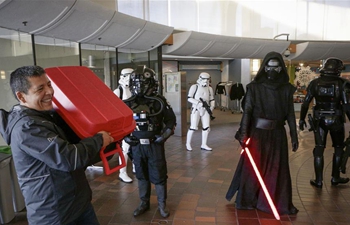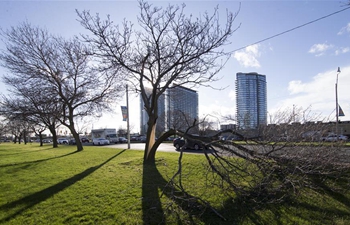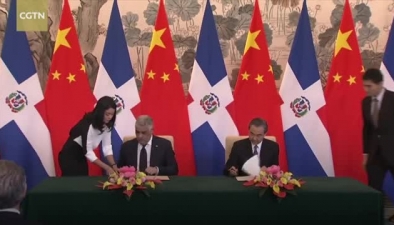HAVANA, May 5 (Xinhua) -- All around Cuba, construction cranes, dump trucks and workers in hard hats are busy working to convert the island's coastal oases into tourism gold.
At renowned Varadero Beach and lesser known seaside destinations, tourism officials have stepped up development to expand hotel capacity and recreational attractions, like golf courses, to spur the most dynamic sector of the nation's economy.
The government is taking advantage of Cuba's International Tourism Fair (FITCuba 2018), being held from May 2 to 6, to ratify its commitment to developing the industry, now the second-biggest source of revenue, after medical services exports, and drum up investment.
"We have a development program through 2030 that comprises 610 projects directed at prime tourism areas," Tourism Minister Manuel Marrero told the opening of Cuba's main tourism trade show.
Those projects include 332 hotels, 51 recreational sites, 30 residential-resort developments, 50 ecotourism projects, 55 camp sites, 22 nautical projects and 70 others.
To counter the bad press the United States has generated for the island recently, Cuba is touting its status as the "safest country" in the world for tourism, a recognition it won at this year's International Tourism Fair (FITUR) in Spain's capital Madrid.
In September, the Trump administration issued a travel warning to American citizens about the alleged risks of visiting Cuba, further reducing travel to the island, which has been virtually off limits for American travelers since the U.S. trade embargo was imposed in 1962.
The travel alert was sparked by purported "sonic attacks" on U.S. diplomats in Havana, which neither U.S. nor Cuban authorities have been able to verify.
Although former U.S. President Barack Obama restored diplomatic ties with the island, the chill in bilateral relations has been a blow to Cuba's growing tourism industry, leading to a 7-percent drop in the number of American visitors in the first half of the year.
Last year Cuba welcomed more than 619,000 Americans after improved bilateral ties led to relaxed travel restrictions that have since been tightened.
In the immediate wake of rapprochement in 2016, the island was visited by a million Americans and Cubans residing in the United States, according to Cuba's Ministry of Tourism.
U.S. hostility isn't the only thing hampering tourism. Hurricane Irma battered the length of Cuba's north coast in September, causing significant damage to tourism infrastructure, though the government made the recovery effort a priority.
Still, the country received a total of 4.7 million foreign visitors in 2017, an increase of 11.6 percent. Despite the obstacles, authorities are aiming to draw 5 million vacationers.













